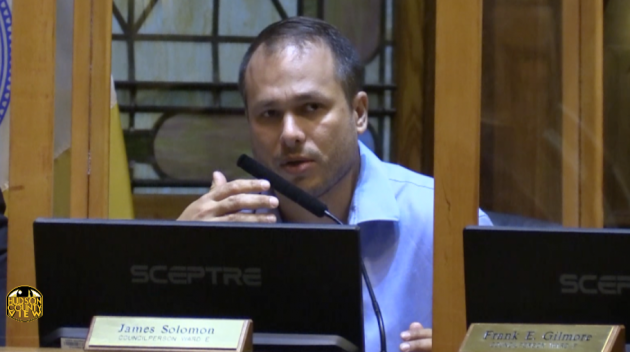In an editorial, Jersey City Ward E Councilman James Solomon explains how strengthening the city’s payroll tax laws will hold corporations accountable, as well as how that can be made possible.
For far too long, Jersey City has been denied the necessary information to hold corporations and developers accountable for paying what they owe in payroll taxes.
This is unacceptable, forcing working families to shoulder the burden of unpaid taxes to fund Jersey City’s Public Schools.
That’s why I am calling on the New Jersey State Legislature to pass Assemblyman Raj Mukherji’s legislation to strengthen our payroll tax laws to ensure the city’s corporations finally pay what they owe in taxes.
Here’s why Assemblyman Mukherji’s bill is so necessary: in 2018, the state legislature granted Jersey City the authority to collect payroll taxes in order to offset the hundreds of millions of dollars cut from Jersey City Public School’s funding.
The roughly $80 million a year that is generated by this tax is critical for our schools’ operation—but we know major corporations and developers have simply refused to pay it.
For example, the now-defunct developer construction firm Katerra sought to build on the West Side, but City Council investigations uncovered that Katerra had not paid their payroll taxes for two years.
It should not have taken two years and an unrelated proposal for the city to discover that one of its developers routinely skipped out on their taxes.
Unfortunately, such occurrences are all too common because businesses self-report their payroll information, with no mechanism for Jersey City to audit these records.
As a result, Jersey City has been collecting payroll tax without accurate data—and some corporations have taken advantage of this gap to evade their rightful contributions.
Assemblyman Mukherji’s bill in the legislature would require the New Jersey Treasury Department to provide municipalities with all payroll records of employers who are subject to the tax – information that these businesses already submit to the state tax office.
In effect, cities like Jersey City would have as much information as the NJ Treasury Department thereby making enforcement truly possible.
Too many corporations across Jersey City have routinely avoided their tax obligations, transferring the resulting deficit onto working families and everyday homeowners.
The New Jersey State Legislature must stand up for working people across Jersey City and the state by making enforcement of the payroll tax easier.
In a properly functioning city, everyone pays what they owe in taxes—and right now, some of our biggest corporations are not.









